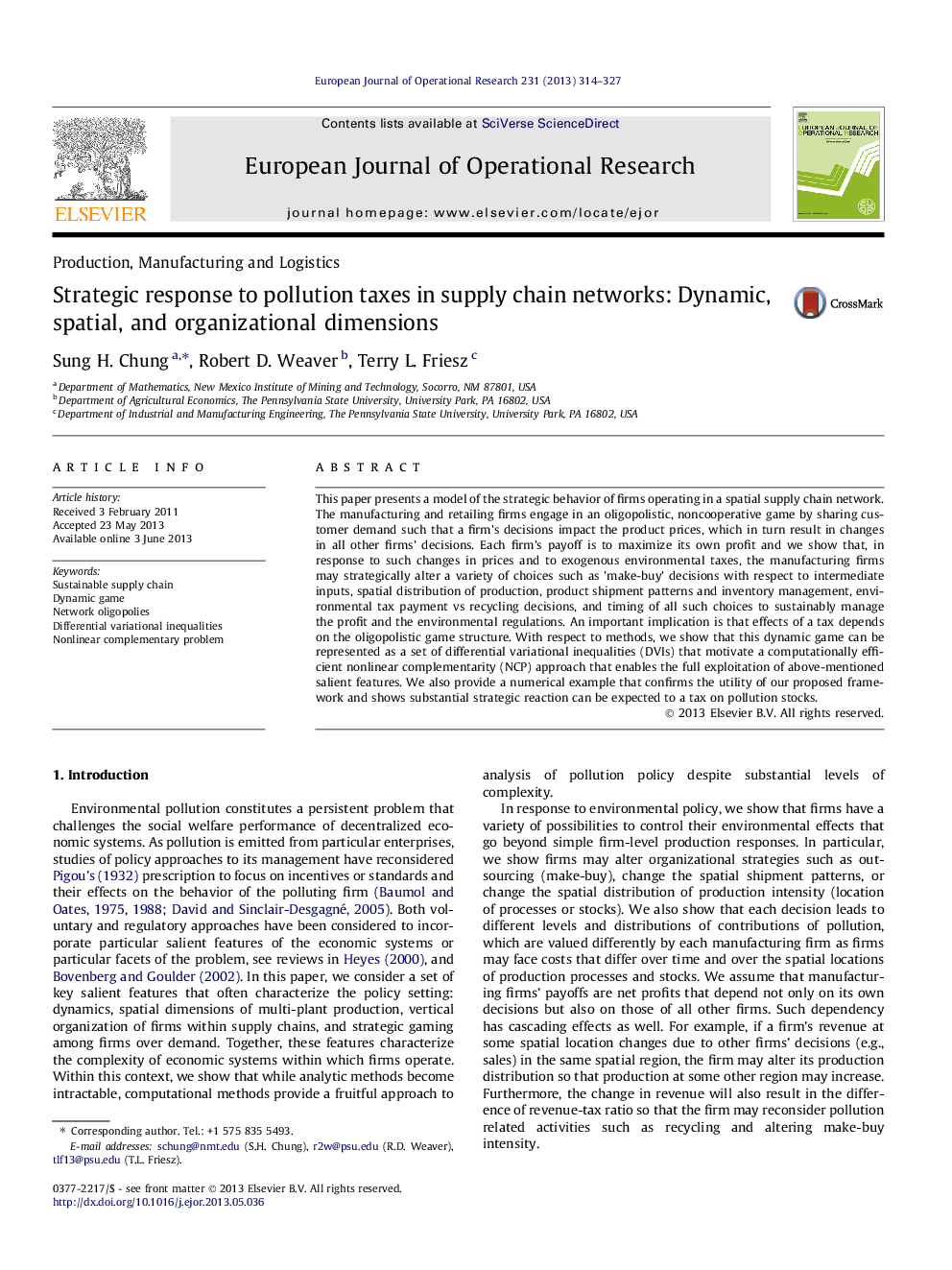| Article ID | Journal | Published Year | Pages | File Type |
|---|---|---|---|---|
| 476696 | European Journal of Operational Research | 2013 | 14 Pages |
This paper presents a model of the strategic behavior of firms operating in a spatial supply chain network. The manufacturing and retailing firms engage in an oligopolistic, noncooperative game by sharing customer demand such that a firm’s decisions impact the product prices, which in turn result in changes in all other firms’ decisions. Each firm’s payoff is to maximize its own profit and we show that, in response to such changes in prices and to exogenous environmental taxes, the manufacturing firms may strategically alter a variety of choices such as ’make-buy’ decisions with respect to intermediate inputs, spatial distribution of production, product shipment patterns and inventory management, environmental tax payment vs recycling decisions, and timing of all such choices to sustainably manage the profit and the environmental regulations. An important implication is that effects of a tax depends on the oligopolistic game structure. With respect to methods, we show that this dynamic game can be represented as a set of differential variational inequalities (DVIs) that motivate a computationally efficient nonlinear complementarity (NCP) approach that enables the full exploitation of above-mentioned salient features. We also provide a numerical example that confirms the utility of our proposed framework and shows substantial strategic reaction can be expected to a tax on pollution stocks.
